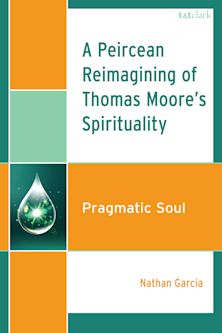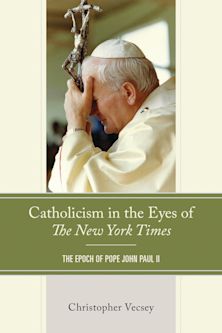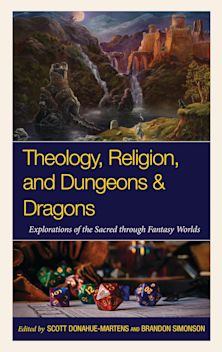- Home
- ACADEMIC
- Theology
- Theology - Other
- A Theology of the Drug War
This product is usually dispatched within 1 week
- Delivery and returns info
-
Free CA delivery on orders $40 or over
You must sign in to add this item to your wishlist. Please sign in or create an account
Description
This book is a political and theological reflection on the violence and injustice that has taken place in Mexico and Central America since 2006 as a result of the drug war. In order to understand and respond to this conflict in the age of globalization, William A. Walker III combines the work of philosopher Enrique Dussel and theologian Hans Urs von Balthasar to develop a theology of the drug war that transcends both a Eurocentric conception of the world and a merely political account of salvation. Walker also highlights examples of Christian and church-based approaches to practicing neighborliness and resistance to drug trade-related violence, challenging both Christians and non-Christians to participate in the creation of a more just and merciful society.
Table of Contents
1. Globalization and the U.S.-Mexico Drug War
2. Resources for a Transmodern Political Theology: Enrique Dussel
3. Resources for a Transmodern Political Theology: Hans Urs von Balthasar
4. Atonement, Event, and Paradox in Political Theology
5. Salvation as Ecclesial Neighborliness and Resistance
Product details
| Published | Dec 05 2019 |
|---|---|
| Format | Hardback |
| Edition | 1st |
| Extent | 186 |
| ISBN | 9781978706484 |
| Imprint | Fortress Academic |
| Dimensions | 229 x 161 mm |
| Publisher | Bloomsbury Publishing |
About the contributors
Reviews
-
Under the duress of the current political context, A Theology of the Drug War is a much-needed contribution. Bill Walker goes beyond the reductionist materiality in liberationist analysis and employs decolonial frameworks to unveil problems ignored by superficial readings of the “US-Mexico” drug war. Walker’s transmodern approach to the theology of salvation opens what have been unimagined avenues of inquiry and commitment, not only for our current context, but also for the generations to come. This is a must read for the academic and church guilds interested in decolonial and postcolonial theologies, border studies, American domestic and foreign policy, international relations, Latin-American and Latinx studies, liberation theologies, religion and conflict studies, and global ethics.
Santiago Slabodsky, Hofstra University
-
What does it mean to speak of 'salvation' amidst the horrors of the 'drug war' in Mexico? Walker addresses this pressing question, combining acute cultural analysis with sophisticated theological reflections. Drawing on a broad range of thinkers and on concrete examples of nonviolent resistance, Walker presents a vision of salvation that is neither simply spiritual nor simply political, neither simply otherworldly nor simply thisworldly. It is rather Incarnational, illustrating the ways that God suffers not simply with, but for, the victims of exploitation and violence.
William T. Cavanaugh, DePaul University
-
We are living in a world overwhelmed with global economic forces bigger than ourselves. Even so, Walker unfolds the call of every Christian to solidarity with the suffering. Delving deep into the theologies of Dussel, Sobrino, Moltmann, Balthasar and many others, his Theology of the Drug War sculpts a political theology of both neighborliness and resistance that can shape our churches for this new political moment. Stunning in scope and potent for our times, I see this book as a testament for what could be.
David Fitch
-
Perhaps here is the book that many have been missing and waiting for, a political theology of our time and our very day, a theology that is thoroughly theological, not a sociology in disguise, but a theology that is deeply immersed in the sufferings of our globalizing world, especially in its typically North American form, the human sufferings of the drug war along the Mexican border, but also a theology that mediates context and concern in a methodologically sound way proper to theology. Walker has produced a book that is thoroughly theological and thoroughly political, a theology that is neither premodern nor postmodern but transmodern, a theology that integrates the politics of imperialism and eschatology of transcendence, a theology that takes seriously the suffering of the poor in history as elaborated in the ethics and theologies of Enrique Dussell, Jon Sobrino, and Ignacio Ellacuria, but also takes just as seriously the aesthetics of Hans Urs von Balthasar with its emphasis on contemplating things with “the eyes of faith.” I heartily and proudly recommend this book to anyone searching for an inspiring synthesis of faith and politics for our time, a faith seeking understanding in our very challenging and confusing world. A deeply personal, spiritual, erudite, and sophisticated book.
Anselm K. Min, Claremont Graduate University


































